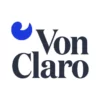In the competitive landscape of digital advertising, businesses often find themselves at a crossroads: Google Ads vs Facebook Ads—which platform is the better investment? Both offer unique advantages, tailored tools, and distinct audience reach. Understanding the differences between Google Ads and Facebook Ads is essential to making a strategic, informed decision that aligns with your business objectives.
Let’s delve deeper into the benefits each platform offers and explore key insights to guide your advertising strategy.
Understanding Google Ads: A Comprehensive Overview
Google Ads, formerly known as Google AdWords, is a powerful platform that allows businesses to harness the potential of paid search advertising. This platform enables businesses to display ads to users actively searching for related products or services, making it a vital tool for capturing high-intent traffic. Here are some of the core benefits of using Google Ads:
Targeting Precision
One of the standout features of Google Ads is its ability to reach potential customers with precision. You can tailor your ads to specific keywords, locations, demographics, and even the time of day. This customization ensures that your marketing efforts are directed toward individuals most likely to convert.
Cost Management
Google Ads offers robust cost-control measures, making it a flexible platform for businesses of all sizes. Advertisers can set daily or monthly budgets, helping to ensure that ad spend stays aligned with overall financial planning. This flexibility is particularly useful for campaigns with strict budget constraints or businesses testing new strategies.
Performance Measurement
Tracking and measuring performance is crucial in any advertising campaign. Google Ads provides detailed reports and analytics, allowing you to assess your campaign’s success. Metrics such as click-through rates (CTR), conversion rates, and return on ad spend (ROAS) can be monitored to refine and optimize your strategies.
Ease of Campaign Management
Managing multiple campaigns is simplified with Google Ads. The platform offers tools to easily tweak your campaigns, adjust bids, and pause or activate ads based on performance insights. This adaptability ensures that your advertising efforts remain agile and responsive to market changes.
Advanced Tools and Features
The Tools tab in Google Ads is a treasure trove of resources designed to enhance your campaigns. From keyword planners that help identify effective keywords to placement refinement tools that optimize where your ads appear, Google Ads equips advertisers with the means to maximize their impact. Additionally, features like conversion tracking are invaluable for measuring the success of your advertising efforts and making data-driven decisions.
In Summary
Google Ads is a powerful resource for reaching users who are actively searching for what you offer. With precise targeting, flexible budgeting, and in-depth performance insights, it’s especially effective for capturing high-intent traffic.

Exploring Facebook Ads: A Deep Dive
While Google helps you connect with people who are already searching for a solution, what about those who haven’t yet realized they need one? That’s where Facebook Ads comes in. Facebook Ads taps into the vast user networks of Facebook, Instagram, and Messenger, offering businesses a dynamic way to build awareness and drive engagement. In contrast to Google Ads, which captures users with active intent, Facebook Ads excel at generating interest by placing your brand in front of users as they browse, connect, and explore.
Audience Engagement and Customization
Facebook Ads empower advertisers to create highly engaging ads tailored to specific audience segments. Through detailed targeting options like interests, behaviours, and connections, businesses can connect with niche audiences effectively. This level of highly customizable targeting ensures that your ads resonate with the right people.
Quick Setup and Results
One of the advantages of Facebook Ads is the ease and speed of setup. With intuitive tools, businesses can launch ad campaigns quickly and start seeing results faster than with many traditional advertising methods. This immediacy is particularly beneficial for time-sensitive promotions or product launches.
Cost-Effectiveness
Compared to other advertising platforms, Facebook Ads offer a budget-friendly option that can yield significant returns. With the ability to set spending limits and optimize for performance, businesses can achieve maximum impact without breaking the bank.
Interactive Call-to-Actions
Facebook Ads facilitate direct user engagement through custom call-to-actions (CTAs). Whether it’s encouraging users to visit your website, download an app, or make a purchase, these CTAs can significantly boost conversion rates by prompting immediate user interaction.
Comprehensive Analytics
The reporting tools in Facebook Ads Manager provide in-depth insights into ad performance. From tracking how many users viewed or clicked on your ad to understanding spending efficiency, these analytics enable businesses to fine-tune their strategies for better results.
Efficient Campaign Management
With Facebook Ads Manager, handling multiple ad campaigns becomes a streamlined process. Advertisers can edit settings across various ad sets with a few clicks, saving time and ensuring consistent messaging across different audience segments.
In Summary
Facebook Ads is a valuable resource for reaching users based on who they are rather than what they’re actively searching for. With detailed audience targeting, flexible budgeting, and visually engaging formats, it’s especially effective for building brand awareness and driving interest among specific user groups.

Google Ads vs Facebook Ads: Which Platform Fits Your Business Best?
When deciding between Google Ads vs Facebook Ads, consider your business goals and target audience. If your primary objective is to capture high-intent users actively searching for products or services, Google Ads might be the ideal choice. On the other hand, if your aim is to build brand awareness and engage with specific communities or lifestyle groups, Facebook Ads offer unparalleled opportunities.
Integrating Both Platforms
Many businesses find that the most effective strategy isn’t choosing one over the other but adopting a hybrid approach that leverages both platforms. By combining Google’s search-driven reach with Facebook’s interest-based targeting, you create a well-rounded, full-funnel strategy that guides potential customers from discovery to conversion. For many businesses, this integrated approach delivers broader reach, stronger messaging, and better return on ad spend across the entire buyer’s journey.
In Conclusion
Ultimately, the final decision between Google Ads vs Facebook Ads should be guided by your unique business needs and marketing objectives. Both platforms offer distinct advantages, and understanding these can help you craft a more effective and holistic advertising strategy. With the right tools and strategies, achieving your advertising goals is within reach—whether through Google Ads, Facebook Ads, or a combination of both.

For a well-rounded digital marketing approach, knowing how to integrate these platforms is key. Further enhance your digital marketing proficiency by exploring topics like Google Ad Grants, which offer additional opportunities for nonprofits to leverage advertising, or delve into Optimizing Onsite SEO to strengthen your organic search visibility.
Ready to elevate your strategy? Explore more tips, insights, and proven tactics on our blog to start transforming your advertising approach today.


